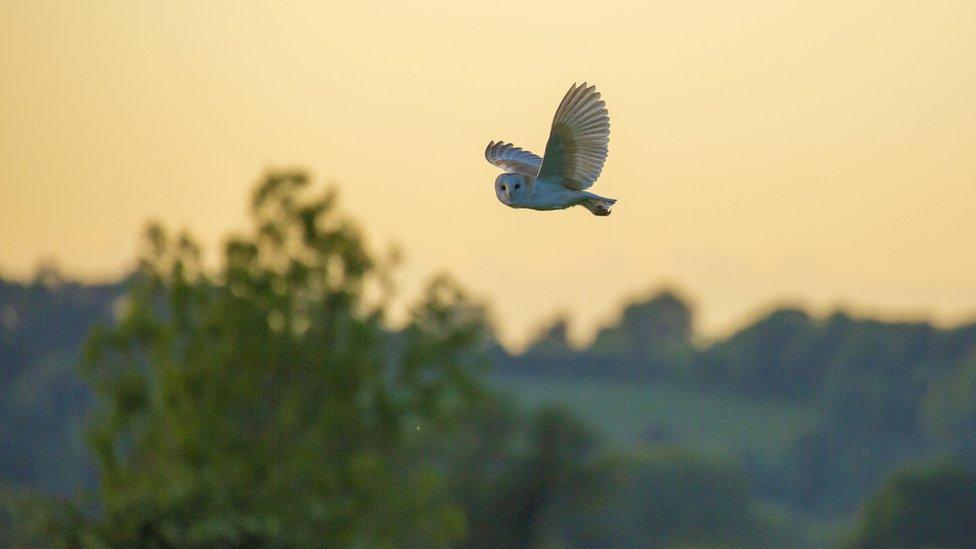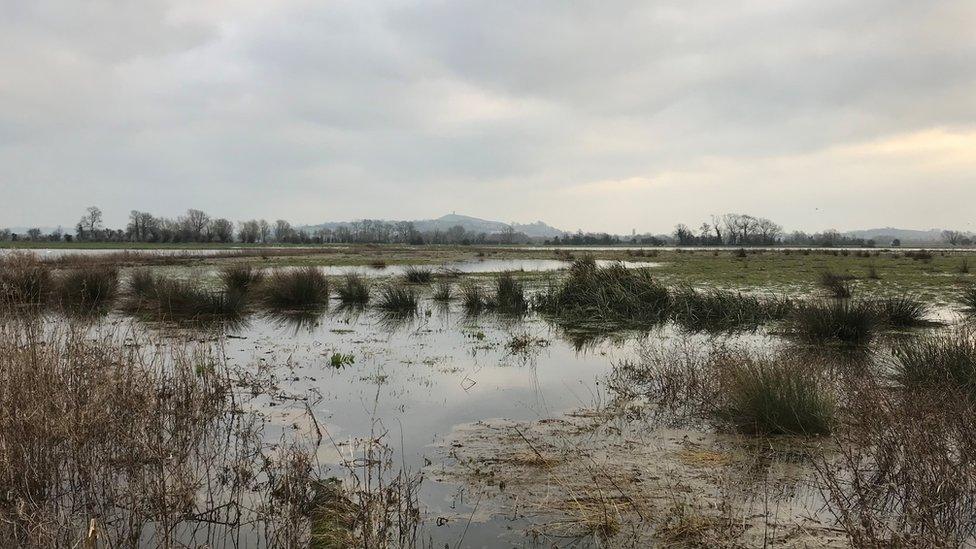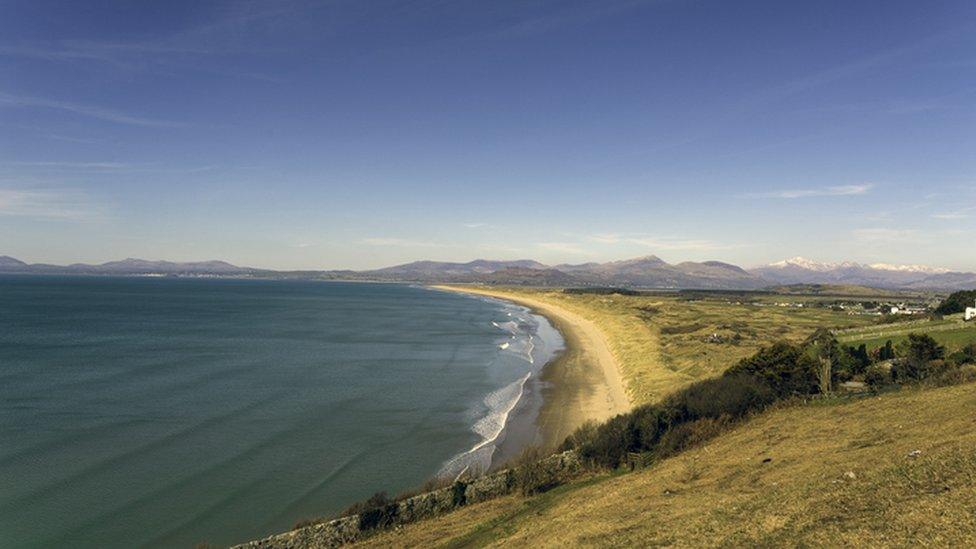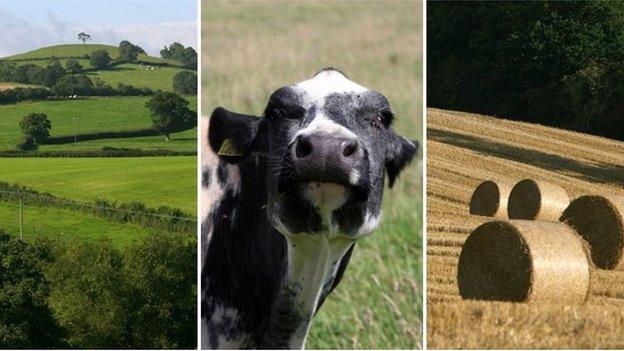Somerset Wildlands aims to 'let nature reign' on Levels
- Published

The conservation group hopes to buy up land and make it more welcoming for nature
A conservation group has begun fundraising to buy land on the Somerset Levels so it can be rewilded.
Somerset Wildlands wants to buy parcels of land totalling 1,000 acres, as and when it is put up for sale, over the next 10 years.
Founder, Alasdair Cameron, said: "It is actually creating space for nature to have a much freer reign."
Mr Cameron also owns 20 acres of land called Godney Marsh which he is also in the process of rewilding.

The founder of the group says it also hopes to work with nature-friendly landowners
The not-for-profit organisation said it wanted to buy land as and when it became available to create a series of "stepping stones" for wildlife.
In the past, conservation groups such as Somerset Wildlife Trust have bought land to conserve and protect the existing biodiversity.
Somerset Wildlife Trust, bought 12 hectares of land between Catcott Heath and Catcott North Nature Reserves in 2008 which was already rich in biodiversity.
Mr Cameron said his approach was slightly different as he wanted to transform "normal" land or farmland which had been intensively used in the past.
He said the "traditional" approach of buying nature-rich habitats was "wonderful" but added: "The difficulty there is that as the climate changes that's going to become increasingly difficult to do.
"Those habitats will start to shift and change anyway so we need to create space for nature to move and adapt and for the land to be able to develop and adapt without us having a fixed idea of what it should look like."
The group is also working with local landowners who are keen to rewild their land, by letting it flood and creating marsh habitats.
Mr Cameron said only 150 years ago, the Somerset Levels was home to giant sturgeon in the rivers.
Archaeological records also show that the Levels had wildcats, lynx, sea eagles and pelicans.
"That doesn't mean we're going to try and introduce something next week," he said.
"The first thing we need to do is build up the network of habitats for existing species and boost those populations that are around but certainly for the longer term we'd absolutely love to see these animals back," said Mr Cameron.
- Published28 October 2019
- Published12 September 2019

- Published7 February 2014
